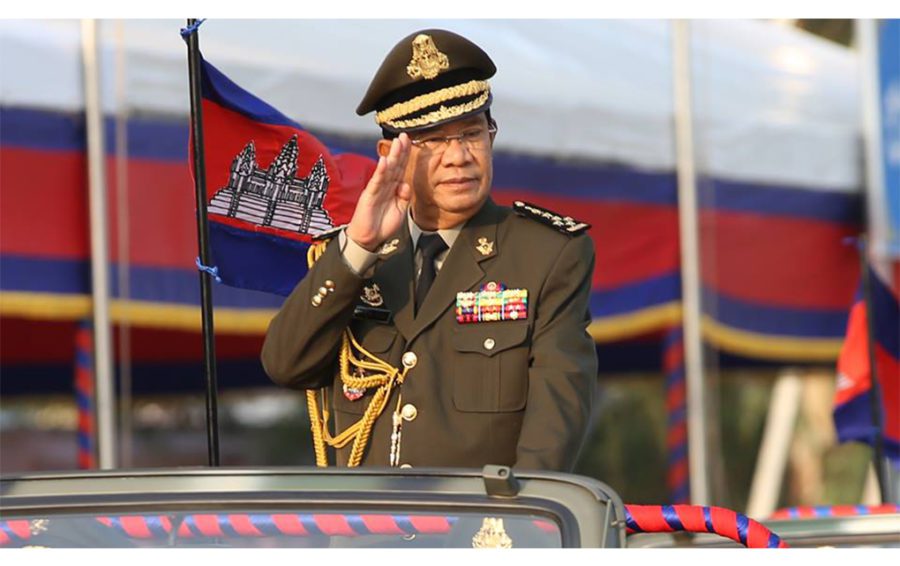The message, once again, was clear: If you want to fight me, let’s fight.
The silence from the military has spoken for itself, at least for now.
Still the premier’s hubristic style in the face of challenge only masks the unenviable position that has necessitated it. The two most lucrative markets for Cambodia’s limited exports remain under threat unless he quickly changes tack — or if E.U. and U.S. officials back down from their threats in the face of his daring recalcitrance.
Others in his party, on the other hand, may only be biding their time and waiting to see if he does anything to undermine his patient plans for a succession.
There is also a tension in his willingness to risk economic ruin amid diminishing exports at the same time he seeks to place his son at the head of a party long promoted as the home for the country’s businesspeople and those who do not “rock the boat.”
Op-Ed: VOD in English on Hun Sen Dares Critics, Within and Without, to Challenge Him

Prime Minister Hun Sen attended the 20-year anniversary of RCAF on January 24, 2019. (Photo/Courtesy of Facebook PM)
NEWS ANALYSIS
In his gravest moments of weakness, Prime Minister Hun Sen has never shied from daring his challengers to a fight.
From asking rival military forces to return in 1991 to ensuring ruling party rival Chea Sim visited Bangkok in 2004 for “medical care,” Hun Sen has made an art out of cloaking creeping fragility within a haze of dramatic displays of defiant cockiness.
The strategy has repeatedly paid dividends, with the prime minister most notably turning the July 1997 “coup d’etat” into the July 1998 “Miracle on the Mekong” election — as well as mounting protests against his rule in 2013 by the Cambodia National Rescue Party (CNRP) into 2014’s “culture of dialogue.”
It is an aggression that gets results. Feeling his weight forced onto his back foot, Hun Sen’s response has been the same: If you want to fight me, let’s fight.
So too again now that the European Union and U.S. threaten to revoke Cambodia’s tariff-free access to their large markets — which buy two-thirds of the country’s exports through the “Everything But Arms” (EBA) and Generalized Systems of Privileges (GSP) schemes — if he does not reverse a descent into despotism.
As head of a regime that has long buttressed its legitimacy in economic development, a less experienced leader might be compelled to offer a brief display of contrition and flexibility when faced with the serious threat of economic damage.
For one, the recent fact-finding trip of the U.N.’s Special Rapporteur for Human Rights, Rhona Smith, to Cambodia for almost two weeks this month may have been seized as an opportunity to display a move back toward democracy.
Not so for Hun Sen, now in his 35th year of power.
On the contrary, in a move seemingly scheduled to coincide with the arrival of a U.N. official, whose opinions will undoubtedly influence decisions made by the E.U. and U.S. over the rest of the year, Hun Sen’s government dug in its heels.
Hence while Smith was winding up her trip to Phnom Penh on May 8 and 9, on the other side of Cambodia the Battambang Provincial Court was busily compelling more than 20 former Cambodia National Rescue Party (CNRP) figures to court on claims they were illegally cavorting over cold noodles.
Continue reading